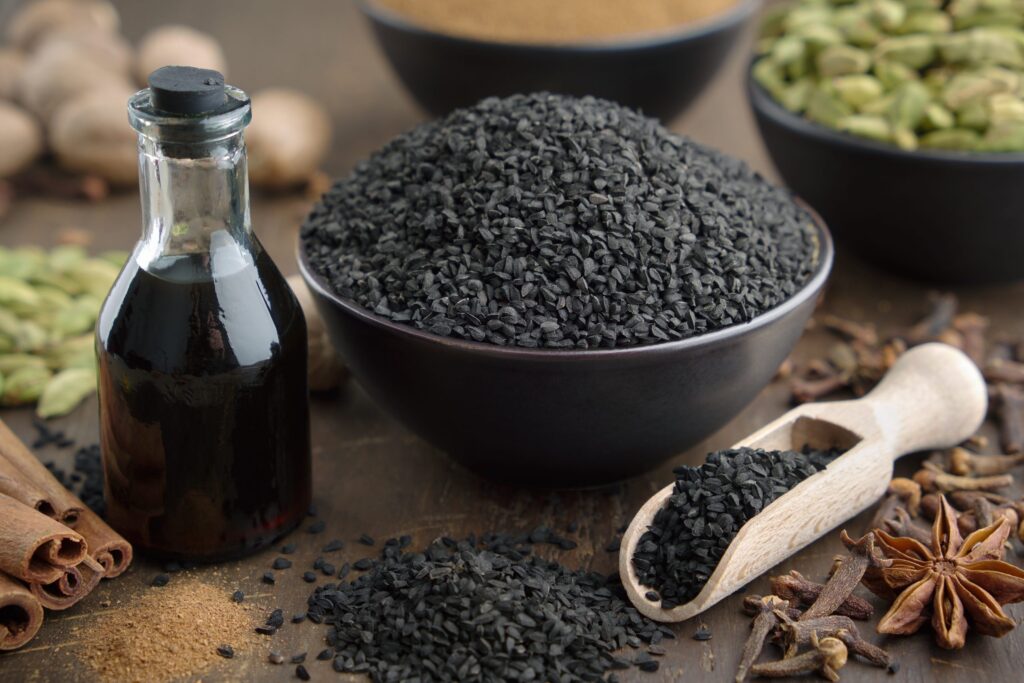Stomach pain is a condition that can drive you crazy if you can’t figure out why you’re having the pain. It could be food poisoning, ulcer, gastric, or a regular menstrual cramp.
Most cases of stomach ache are not severe and are usually short-lived [1].
Unfortunately, there is no strong reason behind a stomach pain.
Whether it’s a sharp pain, cramps, or a mild stomach ache, this pain and discomfort have many causes.
WebMD listed some of the common causes of stomach ache. These include indigestion, stomach virus, food poisoning, gas, constipation, and menstrual cramps.
It can also be a sign of an underlying medical condition such as ulcer, and irritable bowel syndrome (IBS). You can also have the pain due to urinary tract infection (UTI).
Don’t worry, we have a list of natural home remedies that will help you get rid of a stomach ache for sure.
Home Remedies to Get Rid of Stomach Ache
1. Yogurt
Dyspepsia, a pain felt in the upper abdominal area, affects up to 25 percent of the population every year [2].
Most people who suffer from this condition do not go to the doctor for treatment.
It’s either they wait for the pain to subside, or they make use of natural remedies.
You can promote digestion and soothe upset stomach by eating probiotics-rich yogurt.
According to a 2015 study, yogurt is one of the foods that best alleviated the symptoms of dyspepsia [2].
Probiotics are live active cultures like Lactobacillus acidophilus. They help maintain the balance of good and bad bacteria in the digestive tract.
There should be proper balance in the gut microflora. It helps the digestive process to be more efficiently carried out.
Try this natural remedy for stomach ache using yogurt:
Add 2 tablespoons of yogurt and a pinch of salt in water. Add 3 tsp of coriander juice and ½ tsp of cardamom powder. Mix well. Drink the concoction an hour after eating a meal.
Read More: 12 Home Remedies for Constipation & How to Use Them
2. Black Cumin Seeds
Chronic abdominal discomfort can make life hard for you.
It can make it difficult for you to carry on with your usual work and routine.
Get immediate relief using black cumin seeds. This aromatic herb is famous in India, China, and Arabia. Besides, it’s a traditional medicine for common ailments such as indigestion [3].
Black cumin comes in different names: Roman coriander, black caraway, and black seed.
Whatever name you call it, one thing’s for sure; it can help relieve stomach ache.
Studies proved that the seeds have potent anti-inflammatory and analgesic properties. These make them a suitable remedy for stomach pain due not only to indigestion but other causes as well [4].
A simple way to make coriander seeds tea to soothe stomach ache:
Add 1 tablespoon of black cumin seeds in 2 cups of water and boil for five minutes. Let the tea cool down a little. Strain and drink. Take this every day for one week.
3. Carom Seeds
There are many fantastic health benefits associated with the use of carom seeds.
Also known as ajwain, it is famous for the carminative and antispasmodic properties. [5]
It can ease dyspepsia, diarrhea, flatulence, and other conditions that cause abdominal pain. [5]
It’s also an efficient digestive aid. It makes sure that you can digest the food and don’t experience any discomfort after eating. [6]
How to use carom seeds for stomach ache:
Add 1 tsp of carom seeds, 10 drops of lemon juice, and a pinch of black salt to a ½ cup of warm water. Mix well. Drink the concoction to relieve stomach cramps.
Read More: 20 Simple Ways to Get Rid of Period Cramps (& How to Use Them)
4. Clary Sage Oil
Another common cause of abdominal pain is the menstrual cramp, which affects up to 97% of women. [7]
Some people have utilized alternative therapies to treat this problem. These were spinal manipulation and acupuncture [7]
Aromatherapy massage using essential oils is also recommended. [7]
Researchers conducted a study on Korean high school girls with menstrual pain. It proved the pain-relieving effects of aromatherapy massage using clary sage oil [7]
The participants came divided into two groups. The first of these groups received aromatherapy massage. The other took acetaminophen, a painkiller people often used. [7]
Those who received the massage reported of a significant reduction in pain. [7]
The study found it even more effective in relieving dysmenorrhea than acetaminophen. [7]
Learn how to use clary sage oil to reduce abdominal discomfort:
Blend 5 drops of clary sage oil with 1 tablespoon of almond oil. Massage abdominal area with the oil mixture. Repeat several times until menstrual cramps disappear.
Read More: 10 Best Essential Oils for Bone Healing & How to Use Them
5. Clove Oil
Clove oil has many health benefits. Because it contains potent antimicrobial, antiseptic, anti-fungal, antiviral and stimulating properties.
It has been on top of the list when it comes to remedying asthma, headache, cough, toothache, stress, and so on.
Did you know that you can also use it for treating stomach-related problems?
As early as 240 BC, people used clove oil to treat diarrhea as well as other stomach and bowel problems. [8]
The African Journal of Traditional, Complementary and Alternative Medicines published a study. It states that clove oil can reduce abdominal contractions due to acidity. [9]
That’s because it has antinociceptive and anti-inflammatory activities. [9]
It means, this oil can block signals of pain in the brain, and tone down swelling and inflammation.
As the oil can resolve many types of stomach problems, it’s a smart idea always to have it in your medicine cabinet.
How you may use clove oil to reduce stomach pain:
Combine 4 drops of clove oil and 1 tsp of almond oil. Use this oil mixture to massage the painful part of your abdomen. Repeat several times a day until you experience relief.
Read More: 15 Efficient Home Remedies for Bacterial Vaginosis
6. Peppermint
In 2003, a team of researchers reviewed various treatments for recurrent stomach aches. They found that peppermint oil is one of the most effective interventions to reduce pain. [10]
It also has the ability to provide rapid relief from pain caused by irritable bowel syndrome. [11, 12, 13, 14]
Researchers conducted a series of randomized trials that involved 726 patients. [11]
Peppermint oil was more effective than the placebo in improving the symptoms of IBS. [11]
The only reported side effect from the use of this oil was heartburn. [11]
In another study published in the Journal of Gastroenterology, 110 patients participated. They got to choose either a peppermint oil capsule or a placebo three to four times a day for one month. [14]
79 percent of those who used peppermint oil reported less abdominal pain. Also, 29 percent were completely pain-free by the time the treatment was over. [14]
Pregnant women may have abdominal discomfort caused by gastroesophageal reflux disorder. Peppermint can also soothe that pain. [15]
Learn how you can use peppermint oil to reduce stomach ache:
Pour 10 drops of peppermint oil on a clean towel. Soak a towel in warm water. Wring to get rid of excess water. Press on the abdomen. Do this several times a day until you find relief from stomach pain.
Read More: Peppermint Oil for Hair: 8 Reasons to Use
7. Cardamom Oil
Cardamom oil plays many vital roles in traditional medicine. It is rich in antimicrobial, astringent, aphrodisiac, antiseptic, diuretic, stimulant, and anxiolytic properties.
The oil can reduce muscle spasms, soothe the side effects of chemotherapy, ease nausea. It can also combat bacterial infections, and keep many kinds of ailments at bay.
Cardamom also has proven stomach-calming effects that you’d want to take advantage of.
A 2010 study published in The Journal of Ethnopharmacology published a study in 2010. It explained that plants belonging to the ginger family could reduce gastrointestinal problems. Cardamom is one of them. [16]
This herbal remedy is also ideal for those who experience flatulence and indigestion.
Try this cardamom oil massage to get rid of stomach ache:
Take 5 drops of cardamom oil and 1 tsp of almond oil and blend them well. Massage abdomen with this mixture. Repeat several times a day.
Read More: 7 Essential Oils for Gut Health & Gut Flora
8. Ginger
A well-liked kitchen spice, ginger also possesses a vast array of pharmacological benefits. [17]
Since the old times, people have been using it to reduce arthritis, muscle pain, sore throat, and many more.
It can also relieve nervous diseases, toothache, cramps, gum infections, stroke, and diabetes. [17]
It also has “immense value” in treating gastrointestinal problems. These are indigestion, bloating, constipation, gastritis, and dyspepsia. [17]
Studies report its positive impact on women undergoing abdominal cramps due to dysmenorrhea. [18, 19]
The Shahid Beheshti University of Medical Sciences in Tehran, Iran, conducted a study. 150 female participants with menstrual pain participated in that trial.
They received either 250 mg ginger capsule, 250 mg of mefenamic acid, or 400 mg ibuprofen. They continued the process four times a day for three days at the start of the menstruation. [18]
There were no significant differences in the reduction of symptoms among these groups. It indicated that ginger was as effective as those prescribed pain medications. [18]
Iranian researchers recently investigated the effects of ginger on menstrual pain. [19]
A total of 120 female students from the Shahed University participated that trial. They choose between 500 mg of a ginger capsule and a placebo three times a day for five days. [19]
Ginger showed better result in relieving intensity and shortening the duration of pain. [19]
It’s because of the analgesic and anti-inflammatory properties of ginger. These properties make it a viable solution stomach ache. [20]
How to make ginger tea for stomach ache:
Boil water in a pot. Add some ginger slices. Simmer for three minutes. Remove from heat. Strain the ginger slices. Sweeten with honey. Drink the tea two to three times a day.
Read More: How to Use Ginger for Acne: 19 Effective Ways With Directions
9. Fennel
Fennel is one of the oldest spices known to man. [21]
Some people call it “one of the world’s most important medicinal plants.” It’s because fennel comes with various pharmacological properties. Those properties play a significant role in human health. [21]
Fennel has considerable anti-inflammatory, antifungal, antibacterial, anticancer and antioxidant effects. The reason is it has compounds such as estragole, anethole, and fenshon. Researches published in various journals proved that. [21]
Fennel could relieve bloating, promote digestion and prevent pain in the digestive system. [21]
Fennel has antioxidant and anti-ulcerogenic properties. These compounds can relieve painful gastric lesions in cases of peptic ulcer. [22]
You can try these two methods of using fennel seeds to reduce stomach pain:
Method 1:
Chew on one and a half teaspoons of fennel seeds after eating a full meal.
Method 2:
Boil water in a pot. Add a tablespoon of fennel seeds. Remove from heat. Let it steep for 20 minutes. Strain the mixture. Drink the tea before each meal.
Read More: 14 Benefits of Fennel Tea You Don’t Want to Miss Out on
10. Chamomile
Brew a cup of chamomile tea to take advantage of its host of amazing benefits for the health.
Chamomile is an herb that comes in two main types: German and Roman.
People have been incorporating this plant in traditional medicine since the ancient time.
It is a carminative herb that belongs to the daisy family. People often use it to treat stomach ache due to bloating, gas and indigestion. [23]
Chamomile contains active flavonoids – luteolin and apigenin. These are the reasons behind its anti-inflammatory and antispasmodic properties. [23]
This tea is so potent, yet also so mild that even children can drink it in small quantities.
Try this chamomile tea recipe for stomach ache:
In a saucepan, boil a cup of water and add 1 tsp of chamomile leaves. Remove from heat. Let it steep for 15 minutes. Drink this tea three times a day. It’s better if you drink it after each meal.
Read More: 14 Health Benefits of Chamomile Tea (Backed by Science)
11. Asafetida
Asafetida is an oleo gum resin that comes from the root and rhizome of the Ferula asafetida plant. It’s quite popular as a complementary medicine for many illnesses. [24]
Among its countless noteworthy health advantages, it can help soothe a stomach ache.
Asafetida helps expel gas from the stomach to ease pain and discomfort. Because it’s a digestive, antispasmodic, and carminative agent. [24]
People use it to treat a wide array of stomach-related issues. It can treat flatulence, indigestion, kidney stones and gallstones. [24]
How you may use asafetida to soothe stomach ache:
Add ¼ tsp of asafetida to a cup of warm water. Mix well. Drink three times a day.
12. Rice Water
You might find it a bit weird, but rice water could be a great remedy if you have a stomach ache because of diarrhea. [25]
It’s the most natural remedy to find in your home to soothe a stomach ache.
When you boil the rice in water, it releases components that reduce inflammation. They do it by creating a soothing barrier inside of the stomach.
The easiest way to use rice water for upset stomach:
Put ½ cup of rice into boiling water and cook it for a few minutes. Pour the rice into a strainer and catch the leftover water in a bowl. Wait till the water becomes cold enough to drink. You can add honey or some lemon juice based on your preference.
Read More: 4 Best Health Benefits of Jasmine Rice You Must Know!
13. Apple Cider Vinegar
Apple Cider Vinegar or ACV might be the last thing you want to put in your mouth while having a stomach ache. But trust me, it can calm your angry tummy.
It has become a pantry staple for most of us because of its nutritious values. [26]
It can kill bacteria, so if you have a stomach ache due to some bacterial infections, ACV can help you with that.
Apple cider vinegar can also fix acid reflux issues by balancing your stomach acid.
How you can consume ACV to reduce stomach ache:
Add 1 tablespoon of unfiltered, raw apple cider vinegar in a cup of warm water and drink it. You can also mix ACV with your favorite fruit juice.
Read More: Apple Cider Vinegar for Dandruff Remedy: 12 Ways to Try Now
14. Activated Charcoal
If you have a stomach ache due to food poisoning, then activated charcoal could be a good option for you. [27]
It’s carbon, treated particularly to form many cracks and holes in its surface.
It’s a natural substance that can absorb toxins from your body.
It can ease symptoms due to Irritable Bowel Syndrome, reflux, and other stomach issues.
How to consume activated charcoal to treat sick stomach:
You can get one activated charcoal capsule every day. You can also mix one tsp of activated charcoal powder into a glass of water or juice and drink it.
Read More: 11 Home Remedies for Excessive Gas in Dogs
When to See a Doctor
Intense stomach ache sometimes leads to vomiting, a significant cause behind dehydration. If you face trouble keeping water down for longer than six hours, consult your doctor.
Inform your doctor about certain foods that give trouble to your stomach. Also, seek medical attention if you have stomach pain with nausea for more than 48 hours.
Final Word
Stomach ache is very annoying and can hamper your regular operation.
It can make you feel uncomfortable, and cause your stress levels to shoot up.
Sometimes, the pain becomes so severe that people become afraid to get out from home.
Some people say you can’t have eggs during a stomach ache, which is wrong. Avoid hard boiled eggs or an egg dish cooked in too much oil.
Get quick and lasting relief from stomach ache with these herbal remedies that are easy to do at home.
Consult a doctor if the situation becomes dangerous.
Hope this article was helpful to you. Share your experience with us and for any queries or confusions. Leave a comment in the comments section below.
Read Next: 11 Natural Ways to Cure Muscle Spasms in Stomach & Reasons





